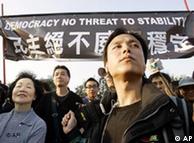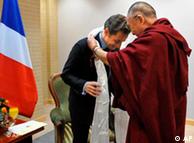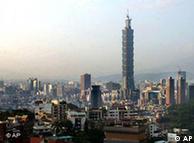Thai Court Disbands Ruling Party

Vincent Thian/Associated Press
Anti-government protesters at Suvarnabhumi International Airport in Bangkok celebrated on Tuesday after Thailand’s Constitutional Court dissolved the ruling party and banned the prime minister from politics for five years.
Published: December 1, 2008
BANGKOK — The Constitutional Court on Tuesday ordered Thailand’s governing party to be disbanded and barred the prime minister and many of his senior ministers from politics for five years.
The court ruling, which came amid protests that have paralyzed the government and blockaded Bangkok’s two airports, dissolves the People Power Party of Prime Minister Somchai Wongsawat.
Thousands of protesters at Suvarnabhumi International Airport, the country’s main tourist gateway, roared when one of their leaders announced the news of the court’s decision from a makeshift stage outside the airport’s departure hall.
The cheers were followed by a minute of silence for the several protesters who were killed in various clashes and grenade attacks during the long protest campaign.
“I’m glad, I feel relieved, it’s like something that we have been carrying is now gone,” said Tonkla Maksuk, 49, a volunteer nurse at the protest. ““I feel that this is still a country of laws.”
The protesters, who have been occupying Mr. Somchai’s offices at Government House in central Bangkok since August, have made his resignation their principal demand. They charge that he is a pawn of the fugitive former prime minister, Thaksin Shinawatra.
In the two years since a military coup ousted Mr. Thaksin as prime minister, a series of court rulings have also banned him and his allies from participating in politics. And as happened Tuesday, his political party was disbanded.
But members of Parliament simply reregistered under the People Power Party, which Mr. Somchai has been leading. Mr. Somchai has remained outside of Bangkok since last Wednesday, possibly fearing a military coup.
Members of Mr. Somchai’s party who were not banned by the court are expected to form a new party, which they will name Puea Thai, and call for an election as early as next week for a new prime minister.
“I’m extremely happy that we have won over tyranny, over the Thaksin regime, which is corrupt and dictatorial,” said another protester, Chokchuang Chutinaton, moments after the court decision was announced at the airport. “Truth will always win over evil, as according to Mahatma Gandhi.”
The court heard arguments in the case on Tuesday morning. The ruling was handed down around 1:30 p.m.
The case involved allegations of voter fraud by the People Power Party and two of its coalition partners in an election in December 2007. The court also banned the top leaders of the Chart Thai and Matchima Thipataya parties from politics for five years.
The ruling preceded another much-anticipated event this week, the annual speech on Thursday of the ailing but highly revered King Bhumibol Adulyadej, who has not spoken publicly about the country’s national crisis.
Earlier Tuesday, a protest encampment at Don Muang Airport in Bangkok was rocked by a bomb blast. The explosion killed one protester, news agencies reported, and more than 20 were injured.
The antigovernment protests that intensified last week with the takeover of the capital’s two airports have plunged Thailand into its worst political crisis in at least a decade, and threaten to severely damage the economy.
The airport blockades have hurt some of the country’s crucial industries, especially tourism, at a time when the Thai economy was already showing signs of a slowdown because of the global financial crisis.
“Tell the world we did not want to blockade the airports,” Dr. Chutinaton said at the protest at Suvarnabhumi Airport. ““It was a desperate measure to achieve our goal.”
There has been concern about violence between demonstrators and the police. There are more than 2,000 security troops on standby around the international airport, but the police have said their priority is negotiation. A police helicopter flew over the main airport on Monday and dropped leaflets asking the thousands of protesters to “rally in peace and without weapons.”
Since Bangkok is also a regional hub for passengers and cargo, the repercussions are also spreading through Asia. Logistics companies and airlines are diverting business to competing hubs in Singapore; Kuala Lumpur, Malaysia; and Hong Kong.
Foreign governments, including that of the United States, have called on the protesters to allow the airports to reopen.
On Monday, after a concession by the protesters, airlines were flying dozens of empty planes out of the besieged international airport. Some of the planes were making stops elsewhere in the country, said Serirat Prasutanont, director of the Airports Authority of Thailand, to help funnel out some of the quarter-million or more foreign visitors still stranded.
The government has been using another airport, U-Tapao, at a Vietnam War-era military base two hours from Bangkok, to fly stranded passengers out. But that airport’s facilities are overloaded, and in any case, extremely limited.
Thailand has two other international airports. One, in Chiang Mai, is an eight-hour drive north of Bangkok, and the other, on the resort island of Phuket, is nine hours to the south.
“At the moment there are hardly any incoming passengers, very few,” said Pornthip Hiranyakij, secretary general of the Tourism Council of Thailand.
On Monday, the rating agency Standard & Poor’s lowered its economic outlook for Thailand because of the blockades. “It has caused serious disruptions to economic activities in the kingdom and raises the possibility of widespread violence markedly,” said Kim Eng Tan, a credit analyst. “These developments will add to the negative pressures of a global slowdown on Thailand’s economy.”
Mark McDonald contributed reporting from Hong Kong.







